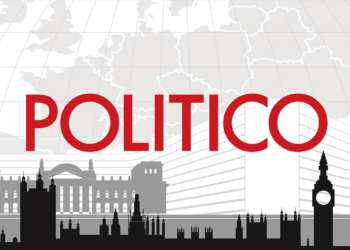President Trump said Tuesday that he had reached a “massive” trade deal with Japan, helping to allay fears of heightened trade tensions between the United States and one of its closest Asian allies.
In a social media post Tuesday evening, the president wrote that Japan had agreed to open its country to imports of American cars, trucks, rice and other agricultural products, as well as invest $550 billion into the United States. He said that Japanese exports to the United States would be charged a tariff of 15 percent, lower than the 25 percent tariff he had threatened against the country’s products if Japan did not strike a deal.
Details were not immediately available, and the Japanese government did not immediately make a statement about Mr. Trump’s announcement. But Japan would be the most significant of the preliminary trade agreements that the Trump administration has announced thus far. The White House says that it has, so far, reached framework agreements with Britain, Vietnam, the Philippines and Indonesia, in addition to a trade truce that rolled back tariffs with China.
But many of these agreements appear to be rough outlines of deals, where some of the provisions still need to be negotiated. For Vietnam, it remains unclear whether the country’s leaders have actually agreed to the terms that Mr. Trump announced.
In remarks Tuesday night, the president said they had “worked on it long and hard and it’s a great deal for everybody.” He also said that administration officials would be meeting again on Wednesday with representatives from the European Union, as the bloc also tries to stave off steep tariffs that would begin Aug. 1.
Japan and the United States had struggled for months to reach a trade agreement. One reason for the slow progress was that Japan had been heading toward a national election, ahead of which voters indicated they did not want the country to make big concessions in pursuit of a trade deal. Those elections were held in Japan on Sunday.
Japan’s prime minister, Shigeru Ishiba, had used ongoing U.S.-Japan trade negotiations as justification for remaining in office after his party suffered major losses in parliamentary elections held last weekend. Shortly after the election results were announced, Mr. Ishiba dispatched Japan’s chief trade negotiator, Ryosei Akazawa, to Washington for an eighth round of trade negotiations.
Mr. Trump’s preexisting tariffs on foreign cars and steel, some of Japan’s most important exports, have hung over the negotiations. Japanese officials had refused to accept any deal that didn’t remove the already-in-place tariffs on its cars. Without a deal, Japan had been facing the prospect of a 25 percent tariff on its exports to the United States beginning Aug. 1, which Mr. Trump communicated in a letter to the country earlier this month.
“This is a very exciting time for the United States of America, and especially for the fact that we will continue to always have a great relationship with the Country of Japan,” Mr. Trump wrote in a post on Truth Social.
Tony Romm contributed reporting
Ana Swanson covers trade and international economics for The Times and is based in Washington. She has been a journalist for more than a decade.
River Akira Davis covers Japan for The Times, including its economy and businesses, and is based in Tokyo.
The post Trump Says U.S. Has Reached Trade Deal With Japan appeared first on New York Times.




